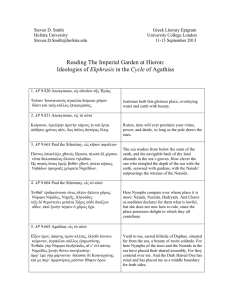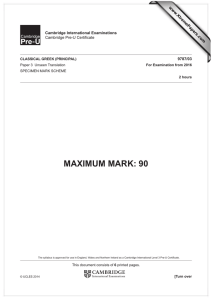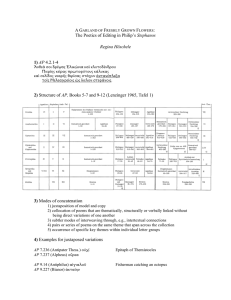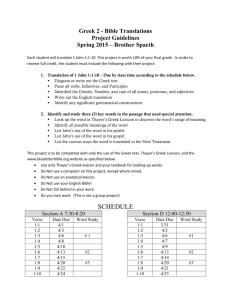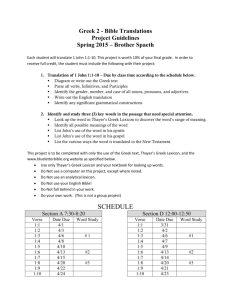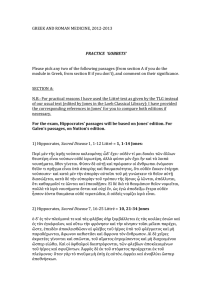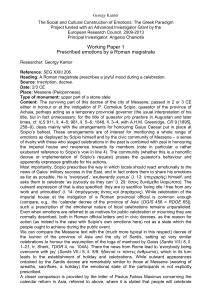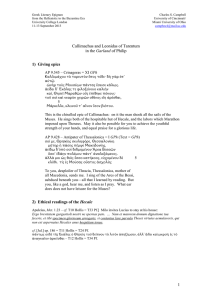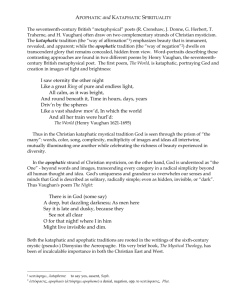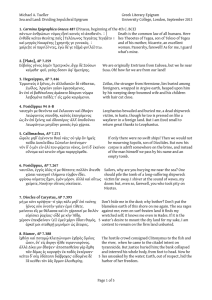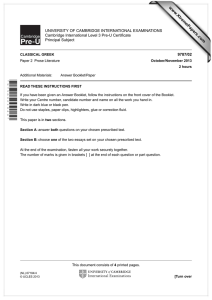Mark 4.35-41 Translation Exercise
advertisement
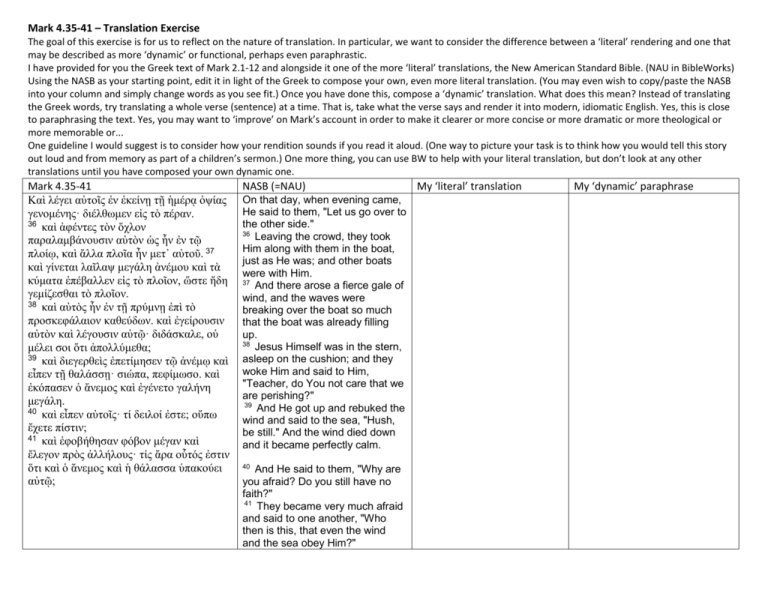
Mark 4.35-41 – Translation Exercise The goal of this exercise is for us to reflect on the nature of translation. In particular, we want to consider the difference between a ‘literal’ rendering and one that may be described as more ‘dynamic’ or functional, perhaps even paraphrastic. I have provided for you the Greek text of Mark 2.1-12 and alongside it one of the more ‘literal’ translations, the New American Standard Bible. (NAU in BibleWorks) Using the NASB as your starting point, edit it in light of the Greek to compose your own, even more literal translation. (You may even wish to copy/paste the NASB into your column and simply change words as you see fit.) Once you have done this, compose a ‘dynamic’ translation. What does this mean? Instead of translating the Greek words, try translating a whole verse (sentence) at a time. That is, take what the verse says and render it into modern, idiomatic English. Yes, this is close to paraphrasing the text. Yes, you may want to ‘improve’ on Mark’s account in order to make it clearer or more concise or more dramatic or more theological or more memorable or... One guideline I would suggest is to consider how your rendition sounds if you read it aloud. (One way to picture your task is to think how you would tell this story out loud and from memory as part of a children’s sermon.) One more thing, you can use BW to help with your literal translation, but don’t look at any other translations until you have composed your own dynamic one. Mark 4.35-41 Καὶ λέγει αὐτοῖς ἐν ἐκείνῃ τῇ ἡμέρᾳ ὀψίας γενομένης· διέλθωμεν εἰς τὸ πέραν. 36 καὶ ἀφέντες τὸν ὄχλον παραλαμβάνουσιν αὐτὸν ὡς ἦν ἐν τῷ πλοίῳ, καὶ ἄλλα πλοῖα ἦν μετ᾽ αὐτοῦ. 37 καὶ γίνεται λαῖλαψ μεγάλη ἀνέμου καὶ τὰ κύματα ἐπέβαλλεν εἰς τὸ πλοῖον, ὥστε ἤδη γεμίζεσθαι τὸ πλοῖον. 38 καὶ αὐτὸς ἦν ἐν τῇ πρύμνῃ ἐπὶ τὸ προσκεφάλαιον καθεύδων. καὶ ἐγείρουσιν αὐτὸν καὶ λέγουσιν αὐτῷ· διδάσκαλε, οὐ μέλει σοι ὅτι ἀπολλύμεθα; 39 καὶ διεγερθεὶς ἐπετίμησεν τῷ ἀνέμῳ καὶ εἶπεν τῇ θαλάσσῃ· σιώπα, πεφίμωσο. καὶ ἐκόπασεν ὁ ἄνεμος καὶ ἐγένετο γαλήνη μεγάλη. 40 καὶ εἶπεν αὐτοῖς· τί δειλοί ἐστε; οὔπω ἔχετε πίστιν; 41 καὶ ἐφοβήθησαν φόβον μέγαν καὶ ἔλεγον πρὸς ἀλλήλους· τίς ἄρα οὗτός ἐστιν ὅτι καὶ ὁ ἄνεμος καὶ ἡ θάλασσα ὑπακούει αὐτῷ; NASB (=NAU) On that day, when evening came, He said to them, "Let us go over to the other side." 36 Leaving the crowd, they took Him along with them in the boat, just as He was; and other boats were with Him. 37 And there arose a fierce gale of wind, and the waves were breaking over the boat so much that the boat was already filling up. 38 Jesus Himself was in the stern, asleep on the cushion; and they woke Him and said to Him, "Teacher, do You not care that we are perishing?" 39 And He got up and rebuked the wind and said to the sea, "Hush, be still." And the wind died down and it became perfectly calm. 40 And He said to them, "Why are you afraid? Do you still have no faith?" 41 They became very much afraid and said to one another, "Who then is this, that even the wind and the sea obey Him?" My ‘literal’ translation My ‘dynamic’ paraphrase
